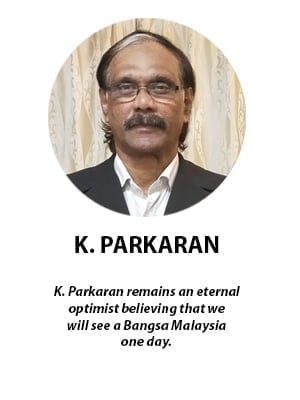
The proposal to introduce a third account in the EPF savings that can be withdrawn as and when the members want is nothing but a populist move. The retirement fund officials have repeatedly warned of very low EPF savings among most of the members, especially those earning average or low wages.
The proposal calls for a percentage of the members’ contributions to be put into this new account which can then be withdrawn as and when they like. In other words, it will be like your personal ATM. You can take out any money left in the account.
Knowing the attitude of most Malaysians towards saving, it will not be surprising to see members applying to take out the money from their third accounts on the day the mandatory contributions are credited into it. Some may accumulate it and withdraw periodically even if they don’t need it badly.
A check with major retirement funds in the world shows that none of them have this facility, obviously because it defeats the very purpose of having a retirement scheme to ensure the aged population have enough to tide them over with minimal state or family help.
Right now, 70% of EPF contributions goes into Account 1 and the rest into Account 2. The first account cannot be touched for other than investment in selected funds. That too only a percentage of an amount which is above a certain level of saving.
Account 2 is strictly to help the members or their next of kin for education, health or housing purposes.
Under these circumstances, contributions to the proposed third account could be drawn from funds meant for the first or second account — or worse, the government may opt to increase the contribution rate, a move that will not go down well with both members and their employers.
The problem of low savings was not created by the government in the first place. It’s the people whose saving habits leave much to be desired. They then often press for withdrawals, some of which resulted in the special schemes over the last three years because of financial problems brought about by Covid-19.
As a result, their account balances have been reduced to alarming levels.
Unbeknown to the politicians who pushed so hard for the four i-Sinar EPF special withdrawals, jewellery shops enjoyed brisk business as many actually used these funds to buy gold. There were no conditions attached and anyone eligible could withdraw from their savings.
As much as 30% of members could have taken out almost all of their Account 1 retirement savings, according to EPF.
For some reason or other, Malaysians just can’t wait to withdraw their money from EPF even though the annual dividends are way above interest rates offered by commercial banks for fixed deposits.
Unfortunately, the governments in power have always caved in to pressure as they had feared it would affect votes. Perikatan Nasional even included allowing special withdrawals in their manifesto at the general election last year.
Only four days before the latest plan was announced in the budget last Friday, EPF chief executive Amir Hamzah Azizan said that the fund is looking for ways to help Malaysians plan efficiently for their retirement, as well as to adequately prepare the nation for an aging society.
He said only 16.4% of EPF members between the age of 50 to 54 have achieved the basic savings threshold of more than RM240,000 in their savings. The fund officials have repeatedly reminded the government directly or indirectly of an old age crisis if it goes on allowing unscheduled withdrawals.
The country’s low-wage structure is another worrying factor. More than 79% of EPF members earn a monthly salary of less than RM5,000, thus many of them have low EPF contributions, which means they have less money to manage their post-retirement living.
This is compounded by the fact that around 40% of Malaysia’s labour force – equivalent to about 6.1 million individuals – are not covered by formal retirement schemes.
In addition, most Malaysians opt for instalment or hire purchase schemes where buying properties are concerned. Credit cards too are widely used with many becoming bankrupt after being unable to settle their dues. So, they don’t have much left to save.
These individuals and EPF members with low savings will have no choice but to turn to the government for aid when they are old, which is beginning to show as Malaysians age.
But as these groups will soon become vote banks for whoever is in power, the governments will continue giving in to their demands even if they are unreasonable.
Here, the government could be playing with fire where retirement plans and old age management policies are concerned. There is dire need for a serious study into this sector and to come up with remedial actions as soon as possible. - FMT
The views expressed are those of the writer and do not necessarily reflect those of MMKtT.



No comments:
Post a Comment
Note: Only a member of this blog may post a comment.